Larry Casey
- - November 22, 2025 - 4 min read 35
You have probably noticed how fast the topic of pressure-steady water systems is trending, and for good reason. When your home water booster pump runs with the right engineering balance, you get stronger pressure, lower energy use, and far less system strain. This is where the real advantage begins, and it is often bigger than most property owners expect.
Here’s to knowing the details about the same -
Why does the right booster setup change everything?
You might think more pressure means more power drain, but modern boosters work differently. They use calibrated flow curves and smart motor efficiency to cut water waste and reduce runtime.
When pressure stays steady, the pump does not sprint, pause, and sprint again. It runs in clean, controlled cycles that save power. This is the first surprising facet that many people never see coming.
And here is the second one. Stable pressure often means valves last longer, which reduces hidden maintenance costs. The third surprise is that well-balanced
- - November 21, 2025 - 3 min read 14
Imagine this. You invest in high-end appliances expecting flawless performance, yet inside those systems, fine particles work like tiny blades. Sediment moves fast, hides well, and quietly drives up repair costs. When you place a whole house sediment filter at the entry point, you create a strong line of defense (against the hidden strain that affects RO membranes, ice makers, dishwashers, mixing valves, and geothermal heat pumps) that shields your home or building’s equipment from early failure. And here is where you begin to see how much protection you have been missing.
As you follow this breakdown, you will notice how damage builds in ways most users never see, and one detail later in this post may surprise you.
Why does sediment wear down your critical appliances so fast?
Sediment hits your RO membrane first. It clogs pores, slows water flow, and forces your system to push harder than it should. What follows is a sharp drop in filtration performance. You also see the story play out
- - November 19, 2025 - 4 min read 23
You know that moment when temperatures drop and your water system suddenly feels tired, slow, and stubborn? This is the cold season’s most common challenge! When winter hits, carbon filter media reacts differently, and you start noticing shifts in flow, taste, and overall performance. If you have ever wondered why this happens, you are about to find real clarity.
Why Do Cold Months Change How Your System Behaves?
When the source water cools, organic loads become heavier. This slows adsorption, and your carbon filter media works harder to keep up. Winter often exposes weak points that stay hidden during warmer seasons. You may even catch yourself thinking - Why is the system dragging now ? Wait till you see what actually happens inside the media bed!
How Does Temperature Slow Adsorption Rates?
As water temperature drops, the pores in your carbon filter media respond more slowly to contaminants. This means the uptake of organics becomes less efficient. You might notice breakthroughs earlier
- - November 18, 2025 - 3 min read 37
You can think of a pump curve like a weather forecast. When you read it right, you know exactly what to expect. When you don’t, everything goes off track! And that is why so many systems with water well pumps fail early. The curve tells the whole story, yet most people skip the details that matter. Let’s walk through it clearly so you avoid those expensive missteps.
Why Do Pump Curves Feel So Confusing To You?
You may look at a pump curve and wonder why it feels like a puzzle! The truth is that it only shows how the pump behaves as pressure and flow change. When you understand that simple idea, the rest becomes clear. And if you rely on water well pumps, reading these curves the right way prevents damage, stops cycling, and protects your investment.How Flow And Head Work Together To Shape System Output?
Flow shows how much water you move. Head shows how much force your pump must push against. When either number is off, the whole system feels the impact.Let’s share a quick analogy. Think
- - October 20, 2025 - 3 min read 38
What’s the biggest mistake that you think you are making now? To install the pressure switch and not care!
Most homeowners and even some contractors install a pump water pressure switch and never touch the factory presets. But here’s the kicker: factory settings are generic. They’re not tuned for your unique water usage, pump curve, or pressure tank size—leading to poor flow, short cycling, and premature pump wear.
Why Adjust Your Pressure Switch at All?
If your water pressure feels weak—or the pump keeps clicking on and off—your pump water pressure switch is likely out of sync with your real-world usage. Factory defaults (like 30/50 PSI) may not align with household demands, multi-story buildings, or high-efficiency fixtures.
When to adjust:
● Upgrading to a larger pressure tank
● Installing a booster pump or VFD
● Adding multiple bathrooms or irrigation lines
● Experiencing rapid short-cycling or flow drop-offs
Fine-Tuning Cut-In
- - October 19, 2025 - 3 min read 31
Think your water is safe just because it looks clean? If you rely on well or even city water, invisible microbial threats like E. coli, Giardia, and Cryptosporidium might still be flowing through your tap. The truth is—chlorine can’t always neutralize these tough pathogens. But a powerful ultraviolet water purification system can.
Would you like to take a look at it? Well, this post will detail out the same for you -
Why Should You Be Concerned?
Pathogen outbreaks aren’t just rare accidents. They’re real, frequent, and deadly when water disinfection fails.Pathogen
Infection Caused Chlorine Resistance UV Sensitivity E. coli
Gastrointestinal illness Moderate High Giardia lamblia
Diarrhea, cramps High High Cryptosporidium
Severe diarrhea Extremely High High
Ever heard of the Milwaukee 1993 outbreak? Over 400,000 fell ill. The culprit? Cryptosporidium—which chlorine couldn’t kill.What Is UV Water Treatment?
Let’s clarify: a UV water treatment system is a post-filtration - - October 18, 2025 - 4 min read 28
When your carbon block clogs prematurely or your reverse osmosis system loses efficiency too soon, sediment is usually the hidden culprit. While often overlooked, a whole house sediment water filter is the quiet workhorse that sets the foundation for every high-performing water filtration system. It’s your first line of defense — and often, the most critical.
Let’s break the myths, explore the flow, and show why systems thinking starts with sediment filtration.
Still Think a Sediment Filter is Optional?
It' s time to rethink your choice!Many homeowners believe that carbon blocks or RO membranes can "handle it all" — including sediment.
Myth #1: “Carbon filters remove everything, including sediment.”
Fact: Carbon filters are for chemicals and organics, not physical particles. Excess sediment chokes them fast.Myth #2: “RO systems filter everything, so pre-filters are redundant.”
Fact: Without pre-filtration, RO membranes foul quickly, reducing lifespan and spiking maintenance costs. - - October 16, 2025 - 4 min read 51
Low water pressure can disrupt everything—from your morning shower to running the dishwasher. If you're tired of inconsistent flow, noisy starts, or pumps that just can’t keep up, you're not alone. The Davey booster pump lineup is engineered specifically to solve these daily pressure headaches with unmatched consistency, efficiency, and quiet operation.
Let’s explore why homeowners and water system professionals trust Davey as their go-to pressure solution.
Feeling the Pressure? Here’s What’s Likely Going Wrong
In most homes, water pressure drops due to one or more of the following:● Distance from the main supply or well
● Elevated plumbing fixtures
● Multiple fixtures running at once
● A failing or undersized pump system
● Poorly maintained pressure tanks or switches
These issues aren't just annoying—they can shorten the lifespan of your appliances and affect your quality of life.
How Davey Booster Pumps Fix Low-Pressure Zones
- - September 19, 2025 - 4 min read 35
Let’s kickstart this post with a couple of queries that most people have - Is your well system quietly draining more than just water? What if your pumping method is unknowingly disrupting the long-term water balance beneath your feet? It’s time to answer these questions.
The growing demand for groundwater means your submersible well pump system isn’t just about extraction—it’s about responsible extraction. Whether you're managing a residential well, a commercial water system, or municipal supply, sustainable groundwater withdrawal is no longer optional—it's essential.
Why Should You Rethink Your Water Extraction Method?
If you're still operating without real-time monitoring or yield-based controls, your water system may be doing more harm than good.
Here’s what’s at stake:
● Over-pumping reduces aquifer levels, leading to irreversible land subsidence.
● Inefficient pumping systems increase your operational costs and carbon footprint.
● Lack of water balance
Key Water Well Components for Agricultural Irrigation Systems: Maximizing Efficiency and Durability!
- September 18, 2025 - 4 min read 32When your crops rely on a steady water supply, downtime isn’t an option. And yet—many agricultural operations still face frequent pump failures, sediment blockages, and rising maintenance costs. The root cause? Often, it's the selection of the wrong water well components. Choosing the right setup from the start saves you time, energy, and thousands in repairs. Let’s break down exactly what you need to build a long-lasting, efficient irrigation well system.
Why Are Well Casings and Screens Critical for Water Quality?
Well casings and screens are your first line of defense against sediment, debris, and corrosion. These components maintain the structure of your irrigation water wells while filtering out sand, silt, and contaminants that could damage your pump or clog your irrigation lines.
● Use stainless steel or thermoplastic well casings for high corrosion resistance and structural integrity—especially important in areas with aggressive groundwater chemistry.
● Slot


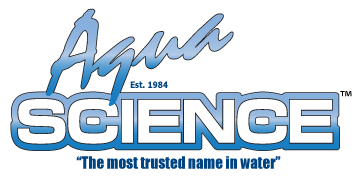

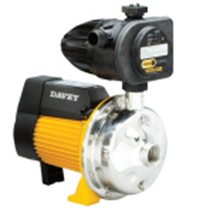
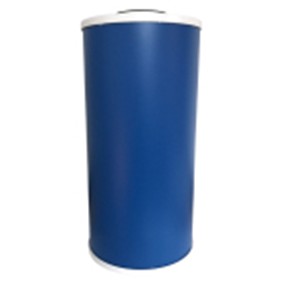
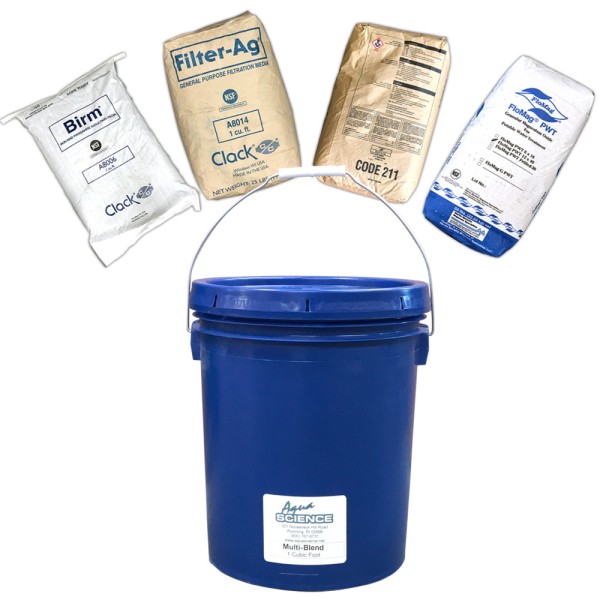
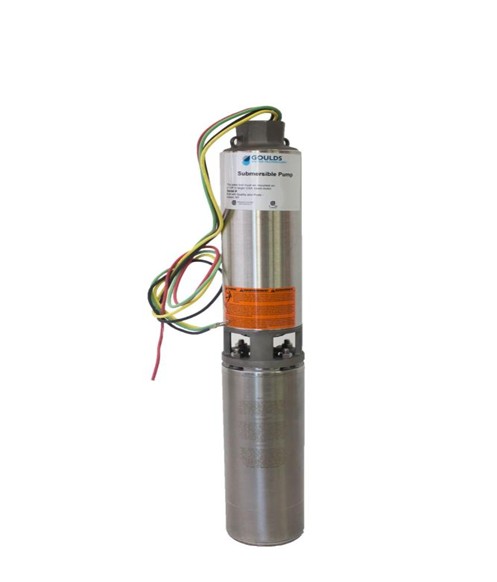
Validate your login